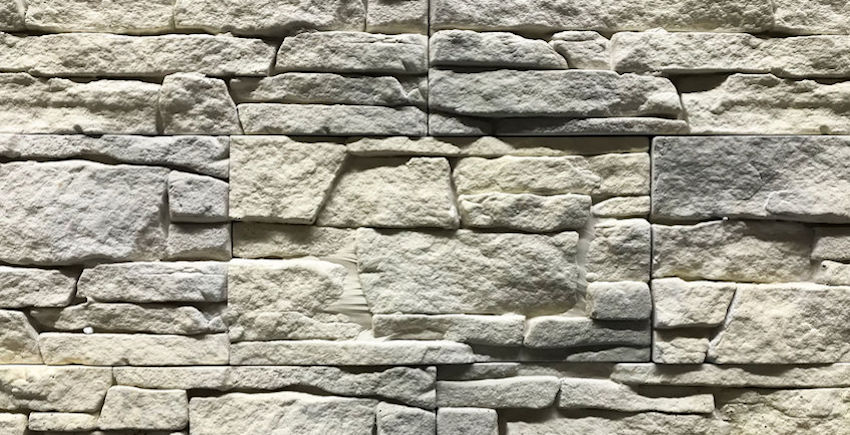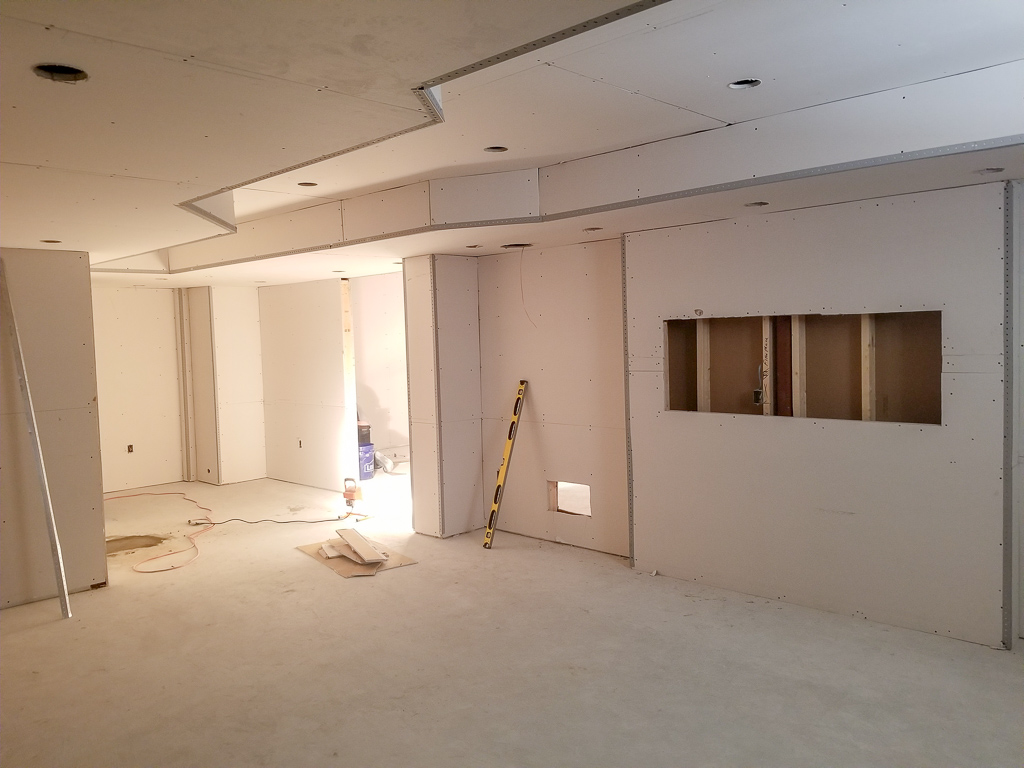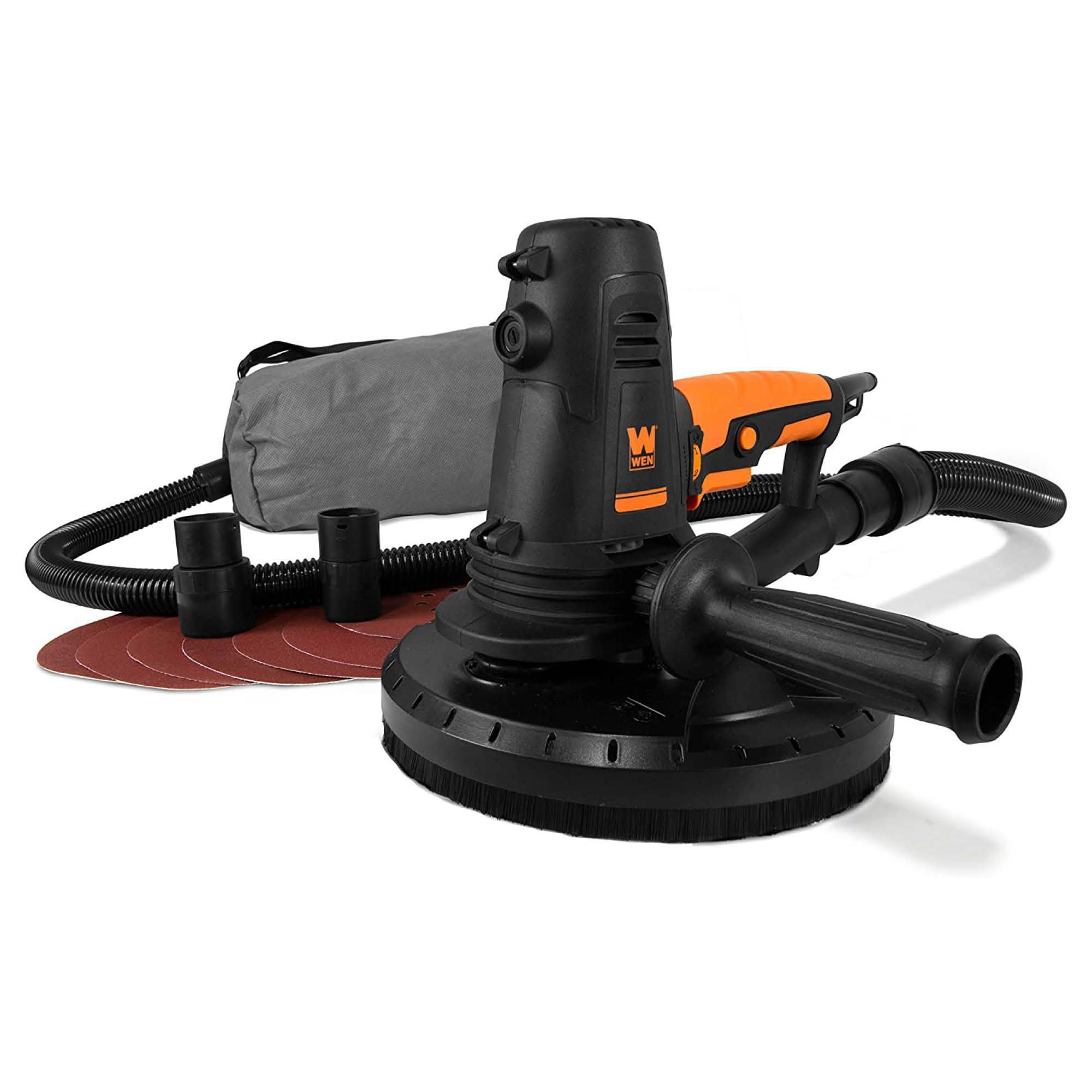
Easy Sand joint cement is a lightweight plaster-based set compound that weighs in at 25% less than other muds. The lightweight formula is easy to use and has a creamy texture. It's ideal for repairing imperfections in the final coating of drywall or to create bedding angles. SHEETROCK's Easy Sand Joint Compound has many other benefits, including its bedding properties. It can be used to smoothen concrete ceilings above grade, laminate gypsum panels and perform surface texturing.
Before beginning any job, it is important to plan according to the setting times of the compound. Overmixing could accelerate hardening. The drying time can be affected by the thickness and consistency of the wet compounds. To achieve a smooth finish, it may be necessary to thin the final coating.
The USG Sheetrock® Brand Easy Sand Joint compound is only suitable for exterior soffits. This compound can also serve as a filler and smoother. It is not recommended to repair butt joints.

While using the product, it is advisable to keep the tools clean. Use a 1/2" drill with a heavy-duty motor and rotate the tool at 200 - 300 rpm. Avoid dragging the sand sponge. Rinse the sponge well. The water should be cooled to lukewarm.
It is important to fill in all gaps between panels before applying the first coat. Before embedding, these gaps must be filled within 24 hours. It is a good rule of thumb to leave at most 1" of dry compound under the edge of your first coat.
The second coat can be applied once the first coat has dried. The second coat should be applied 7 to 10 inches across, with taped and untapped joints. Like the first coat, feather 2 inches beyond the edges for the second coat. Lightly sand the last coat as needed after it is applied. You want to make sure that the sanding sponge is parallel to your compound for best results. You can soak the sponge in water that is free of additives.
Hot mud can be used to make the application faster. This type joint compound sets up quickly. This joint compound can be used multiple times in one day. This basecoat is stronger than regular mud and can be used for repair of drywall. It is important to apply this compound quickly, as it may set up after you finish.

This lightweight, all-purpose joint compound is available in a 5-gallon container. It is designed for universal application. It sands easily and offers superior bonding. It has a lower shrinkage because it is lighter than the other types. It can be handled with little difficulty, except for its slow drying time.
SHEETROCK Easysand Setting-Type DURABOND is a lightweight compound that works on metal corner beads as well as exterior gypsum ceilings. It is not designed to fix butt joints and interior angles.
FAQ
How Much Does It Cost To Renovate A House?
Cost of renovations depends on the material used, how large the job is and how complex it is. Wood, for example, requires additional tools such as saws and drills. Steel, however is not so dependent. The cost of renovations will vary depending on whether your contractor does all the work or you do it yourself.
The average cost for home improvements projects is $1,000 to $10,000. The average cost of home improvement projects would be between $5,000 and $25,000. On the other hand, if you decide to do the entire task yourself then the total cost could reach up to $100,000.
The final cost for renovation depends on many factors. They include the type of material used (e.g. brick vs concrete), the size of the project, the number of workers involved, the length of the project, etc. You must always keep these factors in mind when estimating the total cost of renovation.
Is there anything I could do to save on my home renovations?
It is possible to save money by doing the work yourself. You could, for example, try to reduce the number of people involved in the renovation. You can also find ways to reduce costs for materials during the renovation.
How do I select a competent contractor?
Ask your family and friends for recommendations when choosing a contractor. Also, look at online reviews. Make sure that the contractor you choose has experience in the area of construction that you are interested in. Ask for references and check them out.
How can I avoid being taken advantage of when I renovate my house?
To avoid being scammed, it is essential to fully understand the terms of your contract. Make sure you read every word of the contract before signing it. Don't sign any contracts that aren't complete. Always ask for copies of signed contracts.
Statistics
- On jumbo loans of more than $636,150, you'll be able to borrow up to 80% of the home's completed value. (kiplinger.com)
- According to the National Association of the Remodeling Industry's 2019 remodeling impact report , realtors estimate that homeowners can recover 59% of the cost of a complete kitchen renovation if they sell their home. (bhg.com)
- It is advisable, however, to have a contingency of 10–20 per cent to allow for the unexpected expenses that can arise when renovating older homes. (realhomes.com)
- A final payment of, say, 5% to 10% will be due when the space is livable and usable (your contract probably will say "substantial completion"). (kiplinger.com)
- Rather, allot 10% to 15% for a contingency fund to pay for unexpected construction issues. (kiplinger.com)
External Links
How To
5 Things You Should Know Before Starting Your House Renovation
-
Do you really want to do this? You will need help if you are going to embark on a major home improvement project such as renovating your bathroom, kitchen, or building a new house. But if you don't feel confident enough to tackle such a large task alone, then you might want to reconsider doing so. It can take up your time and cost you money. You won't reap the benefits. Hire someone who knows the ropes to help you. They will help you save time and stress and still give you a beautiful home to live in.
-
How much should you spend? This might sound obvious, but spending too much money on a renovation could lead to more problems. Because you will likely end up paying most of the costs back at the conclusion of the day. If you have a budget in place, stick with it. You could wind up spending a lot and not getting any return.
-
Should I use DIY or hire professionals? - There is no right or incorrect answer. However, we recommend hiring professional tradespeople when you can afford them. They can give you sound advice about how to proceed with your project. They will be able to install the plumbing properly, make sure everything is safe, and give you a warranty after they are done. DIY projects require lots of trial and errors, which can mean you'll have many lessons to learn. Additionally, you will have to deal all manner of problems that can arise along the way.
-
What are my options? - Do not underestimate how expensive a renovation project will cost. Even if you believe you can handle it yourself, it might be necessary to borrow money from your family or friends just to cover the costs. It is also important to consider the selling price of your current property when you plan on selling it soon after you have completed the renovations.
-
Which place should I start? There is no wrong or right place to start when it comes time to choose where to begin. But we suggest you choose something that you enjoy working on. That way, you'll be motivated to keep going, and you'll be less likely to procrastinate. Avoid places that need a lot of attention. You shouldn't redecorate your living space if you are constantly cleaning up dirt and dust.